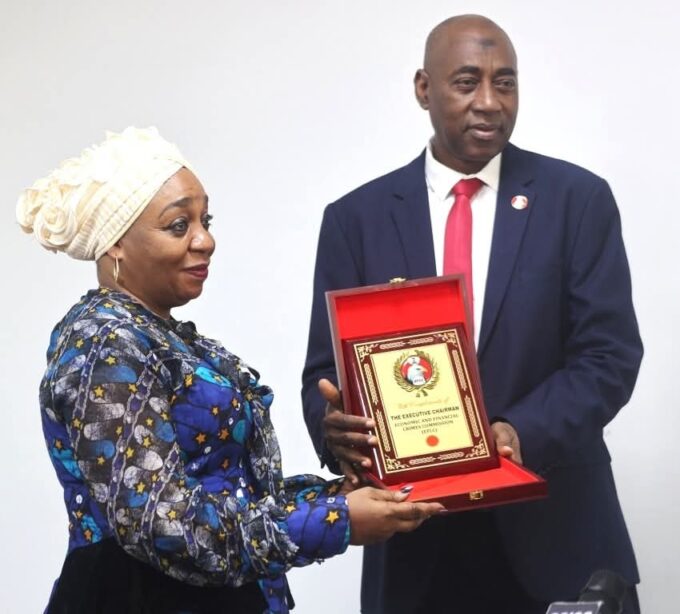BY NKECHI NAECHE-ESEZOBOR—The National Insurance Commission, (NAICOM), on Wednesday said with a well coordinated implementation approach the Insurance Industry Ten Year Strategic RoadMap will increase insurance penetration from the current rate of 0.4% to 2.1% by the year 2033.
The Commissioner for insurance, Sunday Thomas disclosed this at the 2023 Insurance Directors Conference with the theme: “Driving Insurance Sustainability through Innovations and Performance: Directors’ Engagement”, held at Radisson Blu Hotel, Ikeja, Lagos.
He said that the roadmap is also expected to revolutionise the industry and substantially improve the rating of the Nigerian Insurance Market in the global insurance map.
On performance and potential of the insurance sector, he said “the sector has over the years experienced an average steady year on year growth of 15.1% in premium income, however this is far below the opportunities provided by the Nigeria economy.
“It is on record that the cumulative assets of the Contributory Pension Scheme is in excess of N17trillion. The question now is how will the insurance sector maximise its share of this growing fund? Before I conclude my remarks, I will like to draw the attention of the participants to the need to support the government drive towards reviving the economy and derisking individual and business ventures.”
He said in the pursuit of the drive by President Bola Ahmed Tinubu,towards a thriving economy, the insurance sector must be stregthened to play its role in realising this laudable national objective.
The industry road map was launched last month with seven strategic thrusts which includes: Transform the regulatory environment to sustain the industry growth, Transition to risk-based capital model, Promote insurance awareness and adoption, Broaden insurance product offerings and improve effectiveness of distribution channels, Enhance digitalization of the insurance industry, Deepen the industry’s talent pool and capabilities and Support Nigeria’s economic transformation and sustainability agenda.
Read Also: NAICOM Unveils Insurance Sector 10-Year Strategic Roadmap
In his opening remarks, the President Chartered Insurance Institute of Nigeria,(CIIN), Edwin Igbiti, said to drive insurance sustainability, “ we must start by rethinking how we assess and manage risks. Technology plays a pivotal role in this process, we can more accurately assess risks and tailor insurance products accordingly.
“By leveraging real-time data, insurers can identify vulnerabilities, anticipate potential losses, and proactively manage risks. This not only benefits the insurers themselves but also promotes sustainability by encouraging preventive measures and reducing the overall environmental and social impact.”
He noted that technology offers insurers the opportunity to explore innovative insurance products and services that address emerging sustainability challenges.
He added that “climate change, for instance, presents unique risks that require adaptation and mitigation strategies. By leveraging technology, insurers can develop innovative coverage options that protect against climate-related events more comprehensively. This includes parametric insurance products that trigger payouts based on predefined weather patterns or satellite data, enabling faster claims settlements and minimizing administrative costs.
“Moreover, technology can enhance transparency and accountability in the insurance industry. Blockchain technology, for example, provides a decentralised and immutable ledger that ensures the integrity of transactions. By implementing blockchain, insurers can improve trust, reduce fraud, and enhance customer confidence. Additionally, blockchain opens up opportunities for innovative insurance models, such as peer-to-peer insurance, that empower individuals and promote social inclusivity.
“Another area where technology makes a significant impact is customer engagement and education. Digital platforms and mobile applications allow insurers to educate customers about sustainable practices, incentivize eco-friendly behaviors, and provide personalised insights. By encouraging policyholders to adopt sustainable lifestyles and offering rewards for responsible choices, insurers can foster a culture of sustainability and contribute to a greener future.
“Furthermore, innovation in claims processes can drive insurance sustainability. Technologies like artificial intelligence and machine learning enable quicker claims settlements, reducing administrative burden and improving customer satisfaction. By digitalisation claims management, insurers can minimise paper waste, optimise resource utilisation, and deliver a seamless and efficient experience to policyholders.”














